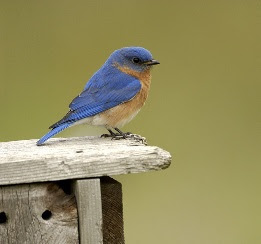Great Lakes Wolf Management in Judge’s Hands
Because there is no dispute that the wolf populations in the Great Lake states have met and exceeded all recovery goals, HSUS has advanced baseless legal theories that, if accepted, would make it extremely difficult to ever take any species off the lists of endangered or threatened species.
Over the last six months, the U.S. Sportsmen’s Alliance Foundation (USSAF) has been hard at work defending against a lawsuit brought by the Humane Society of the United States (HSUS) seeking to return the recovered wolf population in the Great Lakes states to the Endangered Species List (ESA). Just last week, USSAF submitted its last brief in the case and is now awaiting the judge’s decision. Read more

 world-record Great Lakes muskellunge caught in Michigan.
world-record Great Lakes muskellunge caught in Michigan. Do you want a good activity to get you thinking about spring? Then build a bluebird box or two and put it/them up in a good place. Do it now. It really is only a matter of weeks before bluebirds will be looking for nest sites again, and you want to be prepared. Early migrants may use the boxes as roost sites even before they are ready to nest.
Do you want a good activity to get you thinking about spring? Then build a bluebird box or two and put it/them up in a good place. Do it now. It really is only a matter of weeks before bluebirds will be looking for nest sites again, and you want to be prepared. Early migrants may use the boxes as roost sites even before they are ready to nest.  Overland Park, Kan. —
Overland Park, Kan. — 
 This is the petition that will make sure that Michigan’s fish and wildlife are managed with sound science, defeat the anti-hunters, fight Asian carp, and preserve free military hunting and fishing licenses.
This is the petition that will make sure that Michigan’s fish and wildlife are managed with sound science, defeat the anti-hunters, fight Asian carp, and preserve free military hunting and fishing licenses.